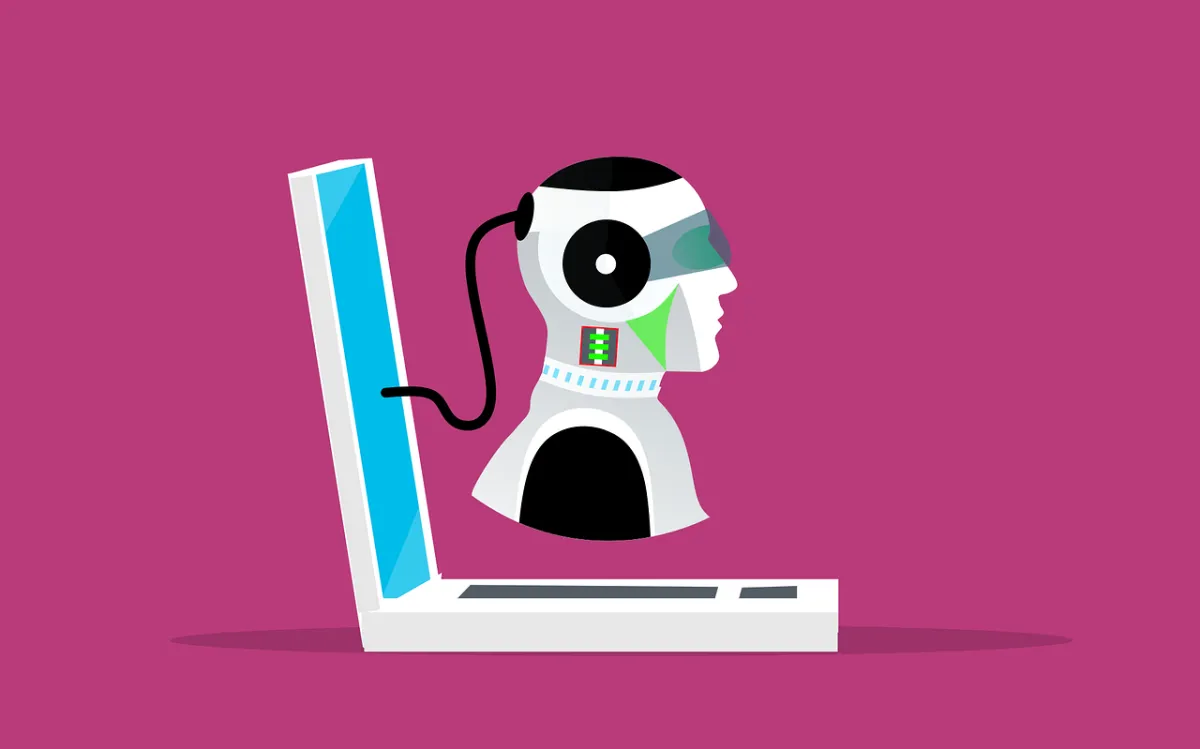See Our Latest Blogs
Stay updated with the latest trends and insights in Information Technology, cybersecurity, and digital transformation. Explore expert advice, practical tips, and innovative solutions to enhance your business efficiency and security on the CMIT Solutions blog

Mastering AI Integration: Empower Your Team with Effective AI Rules
Artificial intelligence (AI) can boost productivity, efficiency, and creativity. But it also comes with challenges. To use AI effectively, businesses need to manage these challenges and set clear, ethical guidelines, or "AI rules," for staff interaction.
Define the Scope and Purpose of AI Use
Before introducing AI, have a clear vision of what you want to achieve and how it aligns with your goals. Communicate this vision to your staff to set realistic expectations and avoid confusion.
Example: An engineering firm could leverage AI for predictive maintenance, reducing equipment downtime and improving project timelines. By clearly defining the scope, such as focusing AI on maintenance scheduling and diagnostics, the firm ensures that staff understand the specific goals and can effectively use AI tools to enhance operational efficiency.
Establish Ethical Principles and Guidelines
Ensure your AI use is ethical, fair, transparent, and accountable. Develop principles and guidelines reflecting your values and compliance with laws. Educate your staff and track compliance.
Example: A nonprofit using AI to analyze donor data should ensure that the AI respects donor privacy and complies with data protection regulations. This includes creating clear guidelines on data usage, ensuring transparency with donors about how their information is used, and regularly auditing AI systems for compliance.
Involve Stakeholders in the Decision-Making Process
AI rule-setting should be collaborative. Involve key stakeholders, including employees, to ensure rules reflect diverse perspectives. This approach enhances rule quality and fosters ownership and engagement.
Example: An accounting firm could involve auditors, accountants, and IT staff in developing AI guidelines to ensure the rules address various perspectives and concerns. By gathering insights from different departments, the firm ensures that AI rules are practical and comprehensive, leading to smoother implementation and greater staff buy-in.
Assign Roles and Responsibilities
AI requires clear roles and responsibilities for tasks like design, development, deployment, maintenance, auditing, and updating. Define who is accountable for AI outcomes and impacts. Support your staff with training and change management.
Example: In an engineering firm, designate roles for monitoring AI's integration into project management and design processes. Clearly defined responsibilities help ensure that AI tools are used effectively and that any issues are promptly addressed, enhancing project outcomes and accountability.
Provide Training and Support
Empower staff with AI skills through comprehensive training programs covering AI basics, applications, and guidelines. Provide ongoing support to ensure confidence in using AI.
Example: An accounting firm could offer workshops on using AI tools for tax preparation and fraud detection. Training programs should cover the fundamentals of AI technology, specific applications within the firm, and best practices for interacting with AI systems, ensuring that staff feel confident and capable in their AI-enhanced roles.
Ensure Data Security and Privacy
Emphasize robust data security and privacy measures. Communicate steps to safeguard information and comply with data protection regulations. Establish a strong cybersecurity framework.
Example: An engineering firm using AI to handle project data should implement encryption and access controls to protect sensitive information. Ensuring robust data security not only protects valuable data but also builds trust with clients and stakeholders, demonstrating a commitment to high standards of data protection.
Put a Feedback Loop in Place
Gather feedback from employees about their AI interactions to identify improvements and refine rules. Address concerns and foster continuous improvement.
Example: A nonprofit might regularly survey staff to gather feedback on AI tools for donor engagement. Creating a feedback loop helps the organization identify areas for improvement, ensure AI tools are meeting staff needs, and address any challenges or concerns, fostering a culture of continuous improvement.
Review and Update Your AI Rules Regularly
AI evolves, so regularly review and update your rules to ensure they stay relevant and effective. Evaluate AI performance and make necessary adjustments.
Example: An accounting firm could set up a biannual review process to update AI usage policies based on new regulatory requirements. Regularly reviewing and updating AI rules ensures that they remain effective and aligned with the firm's goals, adapting to new developments in AI technology and regulatory landscapes.
Encourage a Growth Mindset
Foster curiosity and a growth mindset. Encourage employees to see AI as a tool for augmentation, not replacement. Emphasize that AI enhances capabilities and allows focus on strategic and creative tasks.
Example: An engineering firm could create a culture that celebrates innovative uses of AI in design and project management. Highlighting success stories where AI has significantly improved project outcomes encourages staff to embrace AI as a valuable tool for innovation and growth.
Get Expert Guidance with an AI Transformation
AI can be transformative if used wisely. Follow these tips to set effective AI rules and leverage AI's power while minimizing risks. Need expert guidance for a digital or AI transformation? Contact us today to schedule a chat.
"CMIT has given me peace of mind in my business by providing me with ongoing protection, monitoring and an invaluable resource of providing technical help 24/7 if needed. They have assisted me with various technical needs in my business and I appreciate small businesses supporting other small businesses in our community."
Swiss Learning Center
"CMIT sent Leslie out to deal with my computer issue - which she handled so fast I can't remember now what it was! Leslie was patient, informative, and engaged me with confidence and relief. She did not talk down to me as if I didn't have a modicum of sense - electronically - but instead was in a teaching mode. I'm so glad to know I can call CMIT whenever I have a problem and allay my fear!"
Shari
"Every business NEEDS Carmen and Jaime with CMIT Solutions. They have taken my business to the next level and I am so grateful to have them on our team. It's like having our own personal IT department. We are more productive, more professional, and ready to worry about things other than IT. As a construction company - it is not in our wheelhouse to manage this side of the business and as a small business it's not super easy to know who to contact. They are affordable and knowledgeable and can easily take any business to where they envision. They come with my highest recommendation."
Ashley R.
Get In Touch
Email: [email protected]
Address
Office: 4514 Cole Ave # 600, Dallas, TX 75205
Assistance Hours
Mon – Fri 8:00am – 5:00pm
Sat-Sun – CLOSED
Phone Number:
NOT JUST IT. COMPLETELY MANAGED IT.
Complete IT solutions the moment you need them.
© 2025 CMIT Solutions of Dallas - All Rights Reserved,


